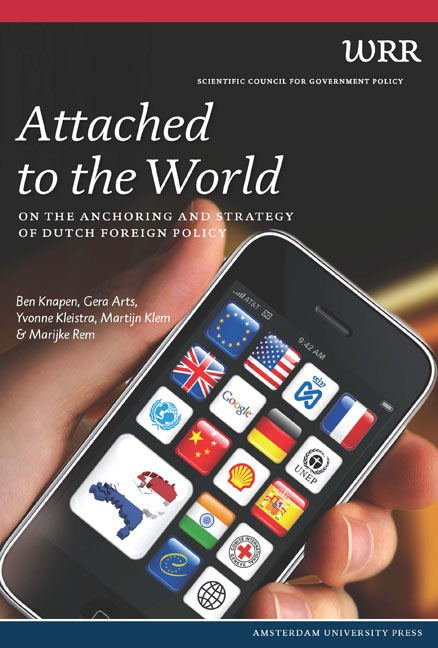Book contents
- Frontmatter
- Contents
- Summary
- Preface
- 1 Motivation and Background: An Introduction
- 2 From Fragmentation to Strategy
- 3 Europe: Arena and Link
- 4 Directing and Facilitating
- 5 Conclusions and Recommendations
- List of Abbreviations
- References
- List of Interviewees
- Appendix 1 The Interrelatedness of the Dutch EconomY
- Appendix 2 The Interrelatedness of the Netherlands With other Nations
- Appendix 3 The Dutch Network of Embassies in a Comparative Perspective
- Appendix 4 Sovereignty in Eu Member States: A Comparison
Appendix 4 - Sovereignty in Eu Member States: A Comparison
Published online by Cambridge University Press: 19 January 2021
- Frontmatter
- Contents
- Summary
- Preface
- 1 Motivation and Background: An Introduction
- 2 From Fragmentation to Strategy
- 3 Europe: Arena and Link
- 4 Directing and Facilitating
- 5 Conclusions and Recommendations
- List of Abbreviations
- References
- List of Interviewees
- Appendix 1 The Interrelatedness of the Dutch EconomY
- Appendix 2 The Interrelatedness of the Netherlands With other Nations
- Appendix 3 The Dutch Network of Embassies in a Comparative Perspective
- Appendix 4 Sovereignty in Eu Member States: A Comparison
Summary
Germany
In Germany, the issue primarily revolves around the rule of law. The German Constitutional Court in Karlsruhe has rendered judgements on the relations between Germany and the EU several times. The approach is not unambiguous and appears to be focusing mainly on setting limits to European integration by protecting national sovereignty. However, one might also claim that the Court is using national sovereignty to influence the direction of European integration and is attempting to transfer nation-state values from the German Constitution to the European level. Bearing in mind the court's ruling on the Treaty of Lisbon (2009), we must conclude that the court certainly recognises a core of national sovereignty that would prevent Germany from merging into a European federation and from ceasing to exist as a sovereign state.
France
The focus in France is much more on the people's sovereignty instead of on national sovereignty: La souveraineté nationale appartient au peuple qui l’exerce par ses représentants et par la voie du référendum (Article 4 of the Constitution). In contrast to the German Constitution, the French text underscores the free national choice for participating in the EU. After the Treaty of Maastricht, the French Constitutional Council: a body that monitors compliance with the Constitution but plays a more political and less judiciary role than the German Constitutional Court – made a distinction between (the transfer of) sovereignty and powers (compétences). In the Council's view, the former is not permitted but the latter is. The French concept of sovereignty has not been given such a political frame. Other forms, such as the political souverainisme, are more striking. Salient in this is the role of what might be called cultural sovereignty. This interpretation might even be of greater significance than the legal and political forms and has both domestic and foreign significance. The protection of the French market against undesirable outside influences and the promotion of its own cultural produce is also known as the exception culturelle (Regourd 2004). The French support for Francophone matters may also be considered an attempt to translate a cultural dimension into political significance. The exception culturelle, however, is not immune to changes from the outside, as Farchy (1999) shows.
- Type
- Chapter
- Information
- Attached to the WorldOn the Anchoring and Strategy of Dutch Foreign Policy, pp. 149 - 150Publisher: Amsterdam University PressPrint publication year: 2012



